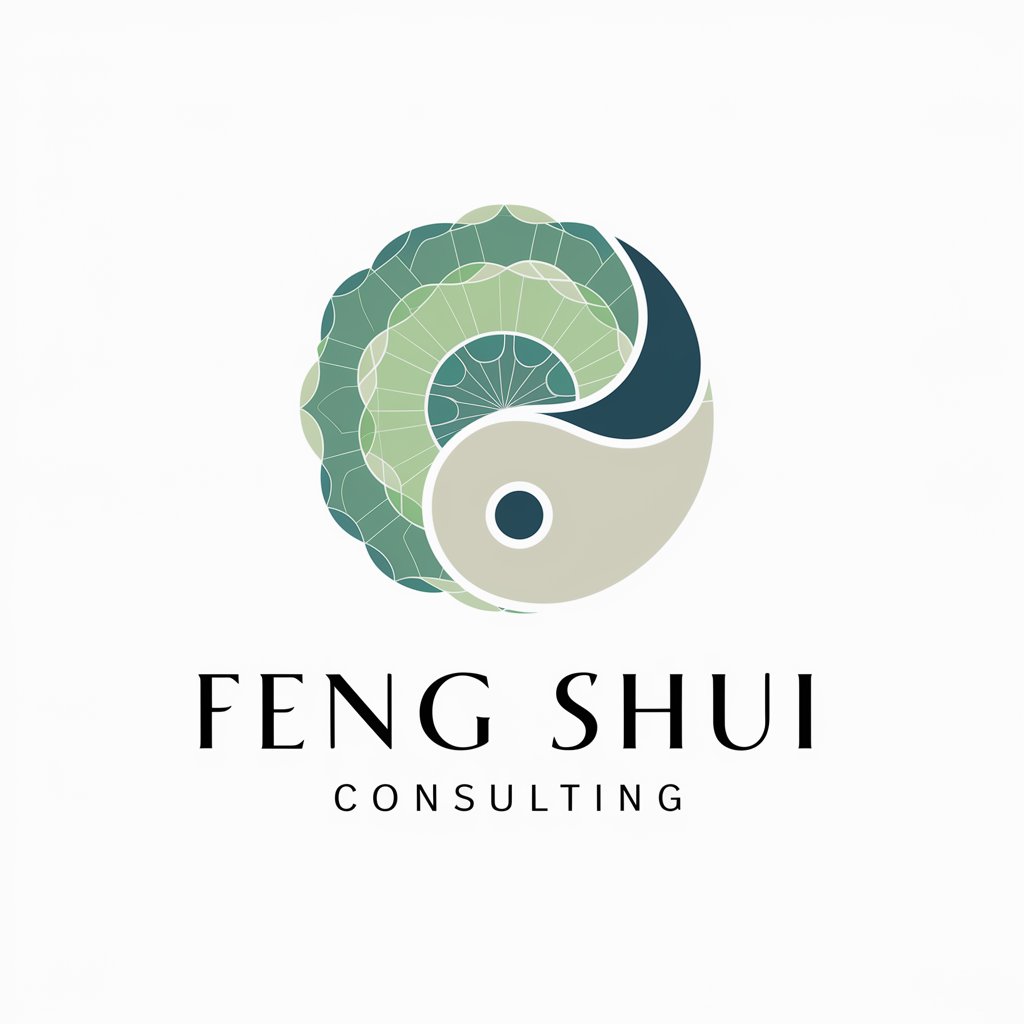Feng Shui - Instant Feng Shui Insights

Welcome! How can I help you harmonize your space today?
Harmonize your space with AI-powered Feng Shui
Can you explain how to use the Bagua Map in my living room?
What Feng Shui tips can help improve my career success?
How do I enhance positive energy flow in my bedroom?
What are some common Feng Shui cures for health problems?
Get Embed Code
Introduction to Feng Shui
Feng Shui, an ancient Chinese art and science, focuses on harmonizing individuals with their surrounding environment. It's grounded in the philosophy of Taoism, emphasizing living in harmony with nature. Central to Feng Shui is the concept of 'chi', or energy flow, along with the principles of yin and yang and the Five Elements (wood, fire, earth, metal, water). The practice involves arranging buildings, objects, and space in an environment to achieve balance and harmony, thereby promoting health, wealth, and happiness. For example, in a home setup, Feng Shui might involve positioning furniture to optimize the flow of energy or selecting specific colors that align with certain areas of life, such as prosperity or relationships. Powered by ChatGPT-4o。

Main Functions of Feng Shui
Energy Balance
Example
Optimizing the layout of a living room to enhance family harmony.
Scenario
Arranging furniture to avoid blockages, using specific colors to enhance energy flow, and adding elements like plants for growth.
Spatial Harmony
Example
Designing an office layout to improve productivity and reduce stress.
Scenario
Positioning desks to face auspicious directions, utilizing natural light, and incorporating elements that correspond to the Bagua map's career sector.
Personalized Enhancements
Example
Boosting an individual's health and well-being.
Scenario
Placing health-enhancing symbols or plants in the east sector of the home, as east is associated with health in the Bagua map.
Ideal Users of Feng Shui
Homeowners
Individuals looking to create a harmonious and balanced home environment. Feng Shui can help in arranging living spaces to promote positive energy, thus improving the overall quality of life.
Business Professionals
Business owners and office managers can utilize Feng Shui to design workspaces that enhance productivity and employee well-being, potentially leading to better business success.
Architects and Interior Designers
These professionals can integrate Feng Shui principles into their designs to create spaces that are not only aesthetically pleasing but also promote well-being and balance for the occupants.

How to Use Feng Shui
Begin your journey
Initiate your Feng Shui journey by exploring yeschat.ai, which offers a complimentary trial, accessible instantly without the need for signing up or subscribing to ChatGPT Plus.
Identify your goals
Clearly define what you aim to improve or enhance in your life or space, such as wealth, health, career prospects, or personal relationships. This clarity will guide the application of Feng Shui principles effectively.
Analyze your space
Use the Bagua map to analyze your living or working space. This tool helps you connect different areas of your space with specific aspects of your life, allowing for targeted Feng Shui interventions.
Implement changes
Based on your goals and the Bagua map analysis, start making changes in your space. This could involve rearranging furniture, introducing elements that correspond to specific energies, or removing clutter.
Observe and adjust
Feng Shui is an iterative process. Observe the effects of the changes you've made over time, and be prepared to adjust as necessary to achieve the desired balance and harmony in your space and life.
Try other advanced and practical GPTs
Spanishy
Empower your Spanish with AI

DogGPT
Bridging hearts with AI-powered loyalty.

Melody Mixer
Discover and blend music effortlessly.

Literator GPT
Enhance Your Literary Journey with AI

Prompt Assistant
Enhancing Creativity and Productivity with AI

Ensinamentos Pleiadianos
Unlock cosmic wisdom and spiritual growth

Cartoonify Me
Turn photos into cartoons with AI

Chefs Veganos
Revolutionize Your Vegan Cooking

Somnus Sleep
Personalized Sleep Enhancement with AI

Omegaverse Oracle
Empowering Omegaverse creativity with AI

Bertram the Brewmaster
Discover, Brew, and Enjoy with AI

Javier "BuildMaster"
Empowering your construction dreams with AI

Feng Shui Q&A
What is the Bagua map, and how do I use it?
The Bagua map is a Feng Shui tool that divides a space into nine areas, each corresponding to different life aspects such as wealth, health, or love. To use it, overlay the map on your home's layout, aligning the bottom edge with the front door. Then, enhance each area with appropriate colors, elements, and objects to improve the corresponding aspects of your life.
How can Feng Shui help improve my career?
In Feng Shui, the north area of your space is associated with career prospects. Enhancing this area with water elements, such as a small fountain or blue decorations, and ensuring it's clutter-free can help boost your career energy, potentially leading to new opportunities and professional growth.
Can Feng Shui impact personal relationships?
Yes, the southwest area of your space is linked to love and relationships. Enhancing this area with pairs of objects, pink or red colors, and elements that promote harmony, such as candles or soft lighting, can strengthen romantic and other personal relationships.
What role do colors play in Feng Shui?
Colors are vital in Feng Shui as they correspond to the five elements (wood, fire, earth, metal, and water) and can influence different life areas. For example, green (wood) promotes growth and health, while red (fire) enhances passion and success. Choosing colors based on the Bagua map areas you wish to enhance can help harmonize and improve specific aspects of your life.
How often should I adjust my Feng Shui arrangements?
Feng Shui is a dynamic practice. It's wise to review and adjust your arrangements whenever there are significant life changes, seasonal shifts, or if you feel that certain areas of your life have become stagnant. Regularly decluttering and refreshing your space can also help maintain positive energy flow.
